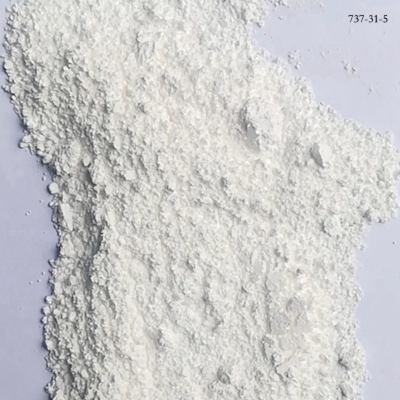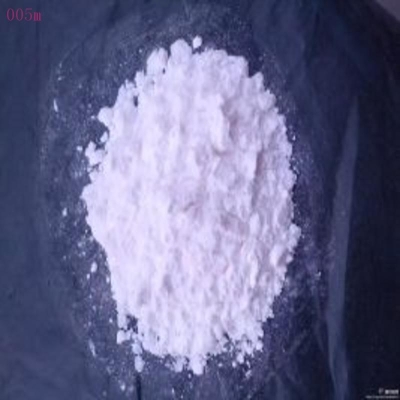-
Categories
-
Pharmaceutical Intermediates
-
Active Pharmaceutical Ingredients
-
Food Additives
- Industrial Coatings
- Agrochemicals
- Dyes and Pigments
- Surfactant
- Flavors and Fragrances
- Chemical Reagents
- Catalyst and Auxiliary
- Natural Products
- Inorganic Chemistry
-
Organic Chemistry
-
Biochemical Engineering
- Analytical Chemistry
-
Cosmetic Ingredient
- Water Treatment Chemical
-
Pharmaceutical Intermediates
Promotion
ECHEMI Mall
Wholesale
Weekly Price
Exhibition
News
-
Trade Service
Although most ultrasonic defect detection and thickness measurement operations are performed under normal ambient temperature, in many cases, it is also necessary to detect very high temperature materials
.
This type of high-temperature detection most often occurs in the processing industry.
For example, workers must inspect the high-temperature metal pipes or tanks being processed on the production line, instead of shutting down the production line and waiting for the pipes or tanks to cool before testing
.
In addition, this type of testing is also required in the manufacturing environment involving high-temperature materials, such as: plastic pipes are manufactured by extrusion molding or plastic products are manufactured by thermoforming.
These products need to be tested immediately, or in metal ingots.
Or test these samples when the metal castings have not been completely cooled
.
Conventional ultrasound probes can detect samples with a temperature of up to about 50°C
.
Above this temperature, the probe will eventually suffer permanent damage, because thermal expansion will cause the components inside the probe to debond
Probe
Olympus's high temperature probes are divided into two categories: dual element probes and delay block probes
.
In these two types of probes, the delay block material (built-in material in the dual element probe) has the function of preventing high-temperature detection surface damage to activate the heat insulation of the probe chip, and can detect high-temperature materials up to 500ºC
Thickness measurement
The most common application of high temperature thickness measurement is corrosion detection, that is, the use of thickness gauges, such as 38DL PLUS and 45MG thickness gauges, to measure the remaining metal wall thickness of high temperature pipelines and tanks
.
These two Olympus thickness gauges provide users with an ideal solution for high temperature detection.
With the D790 series probes used, stable thickness readings can be obtained when measuring high temperature materials (the temperature can be as high as 500 ºC)
.
Its zero compensation function improves the accuracy of measurement on high-temperature surfaces by compensating the temperature change caused by the thermal drift of the probe delay block
Defect detection
Just like high temperature thickness measurement applications, the most commonly used probes for high temperature defect detection applications are dual element probes or delay block probes
.
All standard Olympus dual crystal flaw detection probes have high temperature performance
Coupling agent
Most commonly used ultrasound coupling agents, such as propylene glycol, glycerin, and ultrasound gel, will evaporate quickly if used on a hot surface above 100°C
.
Therefore, ultrasonic testing at high temperatures requires the use of specially formulated coupling agents, which can maintain a stable liquid or paste state at high temperatures without evaporating into gas, being scorched or emitting toxic gases
When using these coupling agents, you must understand their specific temperature range and use these coupling agents within their corresponding specific temperature range
.
Poor acoustic performance and/or potential safety hazards may be due to the fact that the actual temperature of the sample exceeds the expected temperature range of the high-temperature couplant used
In the case of high temperature, even a specific high-temperature couplant should be used quickly, because the couplant will dry or solidify if the time is a little longer, and the ultrasonic energy can no longer be transmitted
Duty factor
When designing all standard high temperature probes, the duty cycle factor must be considered.
Although the delay block of this type of probe has a thermal insulation effect on the inside of the probe, long-term contact with a very hot surface will also cause a high degree of heat accumulation, and eventually, when the internal temperature of the probe rises high enough, it will cause the probe to fail.
Generally speaking, if the housing of the probe becomes so hot that the operator cannot comfortably hold the probe with his hands without gloves, it means that the internal temperature of the probe has reached a temperature that can damage the probe.
Only when the probe is cooled can the test be continued
.
Some users use cold water cooling to accelerate the cooling process of the probe, but Olympus has not issued any official guidelines for cold water cooling, so whether this method is applicable must be determined by the user
.
Olympus thickness can be almost any material fine accurate measurement
.
These include plastics, metals, metal composite materials, rubber materials and internal corrosion, can be widely used in petroleum, chemical, metallurgical, building fields boat, aviation and aerospace
.
As a century-old optical company, Olympus has always applied advanced optical technology to the development and improvement of industrial inspection products
.
Since the establishment of the non-destructive testing instrument department in China in 2010, Olympus has been rooted in the Chinese market, providing advanced industrial testing products and technologies for the Chinese market, while continuously improving and expanding the company’s technical services, industry The investment in exchanges and personnel training has made outstanding contributions to the advancement of China's industrial testing field
.
In the future, Olympus will continue to devote itself to providing more professional and reliable products for China’s industrial testing industry, and use advanced technology and products to build a strong and safe fortress for industrial production and people’s lives
.







